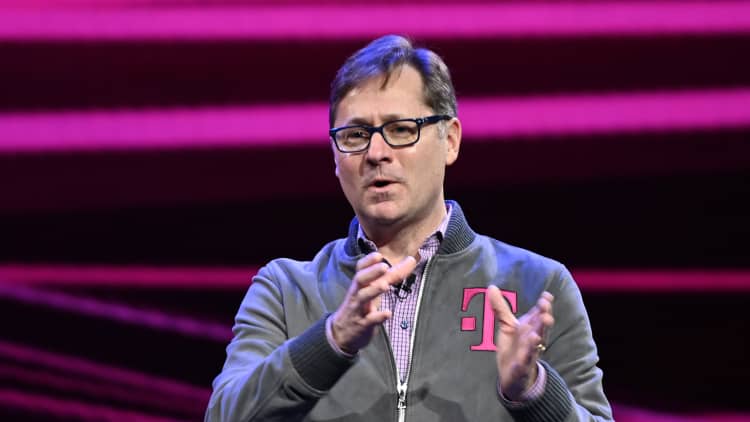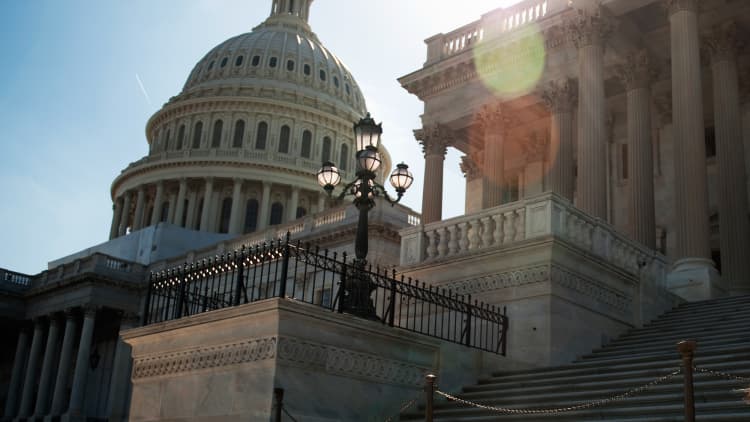
John Legere is officially done with the role of T-Mobile CEO after the company officially closed its merger with Sprint, the company announced Wednesday.
The transition comes ahead of schedule, with President and COO Mike Sievert taking over as CEO effective immediately. In an interview with CNBC's David Faber during "Squawk on the Street" Wednesday, Sievert said that T-Mobile plans to "start lighting up 5G on what was Sprint's spectrum almost immediately."
"That'll start to benefit consumers who came from both sides of this merger immediately," Sievert added. Asked by Faber whether the current COVID-19 outbreak would slow the development of 5G, Sievert said there may be some hiccups with local municipalities, but that the company is still pushing forward.
"We've been classified as essential services, so we're allowed to continue operating," he said. "We've determined from a network standpoint we can do that safely. Individual crews of one person, sometimes it's three, four, five people that arrive in separate cars and work at a safe difference from each other. Other than some issues around permitting, we don't see a slowdown in our ability to bring this network to scale."
Sievert said the company would start to unify Sprint under the T-Mobile brand this summer.
The company announced the planned transition late last year, but said it would occur on May 1, 2020. Legere had long been expected to cede the role after the $26 billion merger closed after clearing regulatory hurdles. CNBC's David Faber reported in July that Sievert was expected to takeover at the close of the deal.
Legere ushered the Sprint merger through a series of challenges, including a lawsuit from a group of state attorneys general seeking to block the deal after the Department of Justice and Federal Communications Commission cleared it with certain concessions. The states argued the deal would limit options for consumers and ultimately raise prices. The companies said the merger would allow a flailing Sprint to become part of a stronger T-Mobile that could take on the top two U.S. telecom companies and expand 5G network service. A judge ruled in favor of allowing the deal to clear in February.
Legere made several other aggressive moves to secure T-Mobile's role among top competitors AT&T and Verizon since becoming CEO in 2012. He created the company's signature unlimited wireless plan and offered to pay termination fees for customers who switched to the service. Other carriers ultimately adopted the same strategy. Legere also brought Apple's iPhone to T-Mobile for the first time.
Legere will remain on the board of directors for the remainder of his term through the annual shareholders meeting in June, the company said.
WATCH: How US antitrust law works, and what it means for Big Tech



